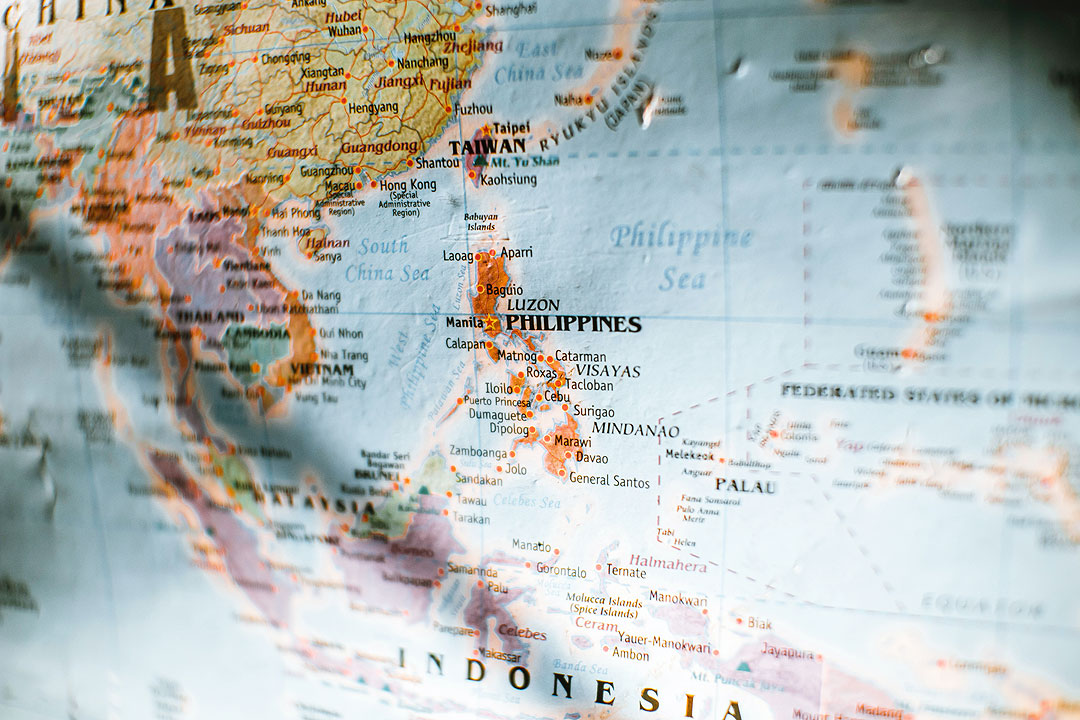
Thinking Beyond Politics
By Renato Cruz De Castro

On June 5, Australian Defense Minister Richard Marles revealed the details of an incident involving a Royal Australian Air Force (RAAF) reconnaissance aircraft and a Chinese People’s Liberation Army Air Force’s (PLAAF) fighter plane in the South China Sea. According to Minister Marles, the Chinese J-16 fighter aircraft flew very close to the side of the RAAF P-8, which was conducting maritime surveillance activities in the region on the basis of international law.
ABC News reported that hours after the Chinese air force fighter plane carried out the dangerous interception of an RAAF P-8A Poseidon reconnaissance plane, a second was sent over the disputed waters in the South China Sea. Australian media also revealed a little-known fact: that both RAAF planes flew from Clark Air Base in the Philippines.
The May 26 incident shows that Australia and the Philippines share a mutual interest in the continued regional security and stability in the face of China’s looming aggression. It also indicates that both sides have always shared real-world military operations, which began with their responses to the 1999 East Timor Crisis, the devastation wrought by Super Typhoon Haiyan on the central Philippines in 2013, and, more recently, the 2017 siege of Marawi City.
A LONG HISTORY OF SECURITY PARTNERSHIP
The Philippine-Australia security partnership is founded on the need to address two common security concerns — counter-terrorism efforts against transnational terrorist movements in Southeast Asia, and maritime security in the West Philippine Sea.
During the five-month battle for Marawi City between the Armed Forces of the Philippines (AFP) and Islamic militants, the RAAF deployed two AP-3C Orion aircraft that provided surveillance and reconnaissance support to the AFP combat operations. In the immediate aftermath of this battle, Australia deployed ADF personnel to the Philippines to advise and assist the AFP in its counter-terrorism campaign against the Islamic militants — something that the ADF had been doing in Iraq. It also pursued further collaboration and capacity-building in the Sulu Sea. This is to limit the movement of money, technology, and fighters to extremist groups in the Southern Philippines.
During the Aquino administration, both countries increased their maritime cooperation in the face of China’s maritime expansion. The late President Benigno Aquino III offered Australia a strategic partnership similar to what the country had forged with the US and Japan. On Nov. 18, 2015, Aquino and then-Australian Prime Minister Malcolm Turnbull signed the Joint Declaration on Australia-Philippine Comprehensive Partnership, which formalized what has been a close and comprehensive working bilateral security partnership between the two American allies.
In December 2015, the Philippine Navy and the Royal Australian Navy signed the Terms of Reference for Navy-to-Navy Strategy Talks and in 2016, Australia turned over five Balikpapan-class land craft heavy (LCH) to the Philippines. The acquisition of the five Australian-made LCHs bolstered the Philippine Navy’s strategic sealift capability, humanitarian assistance, and disaster relief operations.
In mid-August 2021, Manila and Canberra signed the 2021 Philippine-Australia Mutual Logistic Support Arrangement, which is considered the most significant and recent security arrangement between the two security partners. The agreement allows Philippine and Australian naval ships and air force aircraft to refuel and have access to each other’s military bases.
AUSTRALIA’S VIGOROUS SUPPORT OF THE ARBITRAL AWARDS
Australia augments its security cooperation with the Philippines through its vigorous support of the Permanent Court of Arbitration’s decision in favor of the Philippines. In 2013, the Philippines filed a claim against China’s expansive claims to the waters and seabed of the South China Sea based on its nine-dash-line in the arbitral tribunal on the United Nations Convention on the Law of the Sea (UNCLOS).
On July 12, 2016, the Permanent Court of Arbitration ruled that China’s claim is completely untenable. Australia called on both the Philippines and China to abide by the ruling, which Canberra considered final and binding on both parties.
In commemoration of the 6th anniversary of the Philippines’ victory in the arbitral ruling, the Stratbase Institute hosted the international conference “Redefining Maritime Cooperation in the Indo-Pacific in an Age of Uncertainty” on July 12.
Professor Victor Andres “Dindo” Manhit, Stratbase president, welcomed the diplomatic community, government officials, scholars, and regional and global security exports. He said, “Changes in the international political economy, geopolitical shifts, rising inequality, and political instabilities continue to complicate global risks. As the international community attempts to fully recover from the impact of the COVID-19 pandemic, the increasing interconnectedness of states and the simultaneous existence of various traditional and non-traditional challenges have engineered a more multifaceted and unpredictable geopolitical backdrop, especially in the Indo-Pacific.”
Amid the exchange of views and evidence-based arguments, John Blaxland, Professor of International Security and Intelligence Studies of the Australian National University, stated that there is “an overwhelming amount of overlap of interest between Australia and the Philippines, including our interests and our enemies. We can’t just sit on the fence. We have interests to defend. Our interests are being challenged. Our deterrents need to be bolstered.”
In the culmination of the international forum, Mr. Manhit reiterated the universality of the UNCLOS and that through alliance and cooperation with the international community, we can feel the overarching relevance of the 2016 ruling and the rule of law.
Australia has always been a key ally, a like-minded state, in the Philippines’ quest for defense and maritime stability. We cherish our friendship and shared values with Canberra.
Renato Cruz De Castro is trustee and program convenor of the Stratbase Institute.